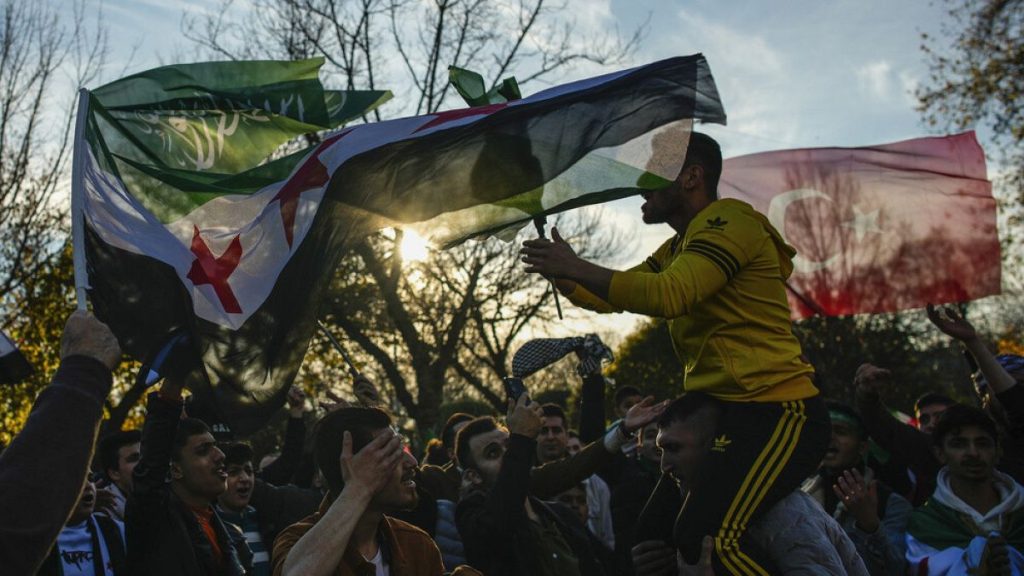The fall of Bashar al-Assad after 13 years of brutal civil war in Syria has sparked hope and trepidation among the millions of refugees scattered across the globe. Three former student protestors, Maydani, Abdulrahman, and Ahmad, each bearing the scars of imprisonment and forced exile, shared their perspectives with Euronews, reflecting on the arduous journey from revolution to refuge and the uncertain path towards returning home. Their stories paint a vivid picture of the revolution’s impact, the harrowing escape from a collapsing nation, and the complex emotions surrounding the unexpected turn of events leading to Assad’s downfall. All three men experienced the brutal realities of Assad’s regime, enduring torture and imprisonment before managing to escape. The fear of arbitrary arrest, disappearance, and death permeated their lives, even after release, driving them to seek refuge beyond Syria’s borders.
Their individual journeys to safety highlight the chaotic and desperate nature of refugee flight. Abdulrahman found relative stability in Turkey, home to the largest Syrian refugee population. Maydani and Ahmad, however, braved the dangerous Mediterranean crossing, eventually finding new homes in Sweden and Germany, respectively. While Germany offered Ahmad a welcoming environment where he could rebuild his life, study, marry, and become a teacher, Maydani faced greater challenges integrating into Swedish society, struggling with the language barrier and the devaluation of his professional qualifications. Despite the difficulties, he established a taxi business while his wife retrained as a dentist. Abdulrahman, leveraging his experience, secured a position as an editor at Al Jazeera. These varied experiences underscore the diverse challenges faced by Syrian refugees as they attempted to reconstruct their lives in foreign lands.
The fall of Assad, orchestrated by the Hayat Tahrir al-Sham (HTS) rebel group, came as a surprise to all three men. They had long resigned themselves to the seemingly intractable nature of the conflict, losing hope that Assad’s regime would ever crumble. The swift and unexpected victory brought a mix of elation and anxiety. While celebrating the end of Assad’s reign, they also harbored concerns about the future under HTS, a group with a controversial past linked to extremism. The initial euphoria gave way to cautious optimism as they awaited clarity on the new government’s policies and intentions.
HTS, a group born from the merger of several Sunni Islamist rebel factions, carries the baggage of its history, including designations as a terrorist organization by international bodies. Its leader, Ahmed al-Sharaa, a former al-Qaeda fighter, has attempted to rebrand the organization as moderate and inclusive, promising to protect minority rights and uphold women’s rights. However, skepticism remains widespread, both within Syria and internationally. Experts and Syrian women’s groups have voiced concerns about the absence of women in leadership positions and the potential for a regression of women’s rights under HTS rule. The international community remains wary, closely watching HTS’s actions to assess the veracity of its claims of moderation.
The refugees’ perspectives on returning to Syria are tinged with both hope and pragmatism. While eager to visit their homeland for the first time in years, they acknowledge the daunting challenges that lie ahead. The devastation wrought by 13 years of war has left much of the country in ruins, raising questions about where returning refugees would live and how they would rebuild their lives. The psychological impact of the war on children who have grown up in exile, with little to no memory of Syria, adds another layer of complexity to the repatriation process. Despite these obstacles, the refugees express a belief that with time and effort, Syria can be rebuilt, and they can eventually return home permanently. They view the current situation as a starting point, recognizing that rebuilding their lives and their nation will be a long and arduous process, but one filled with the promise of a future free from Assad’s oppression.
The fall of Assad marks a significant turning point in Syria’s history, but the future remains uncertain. The hopes of millions of refugees rest on the ability of the new government to establish stability, ensure inclusivity, and address the immense challenges of rebuilding a shattered nation. The international community plays a crucial role in supporting this process, providing aid and holding the new government accountable for its commitments to human rights and democratic governance. The stories of Maydani, Abdulrahman, and Ahmad represent the struggles and aspirations of countless Syrian refugees, their narratives intertwined with the hope of a peaceful and prosperous future for their homeland. Their journeys, marked by resilience and determination, embody the human cost of war and the enduring power of hope in the face of adversity.














